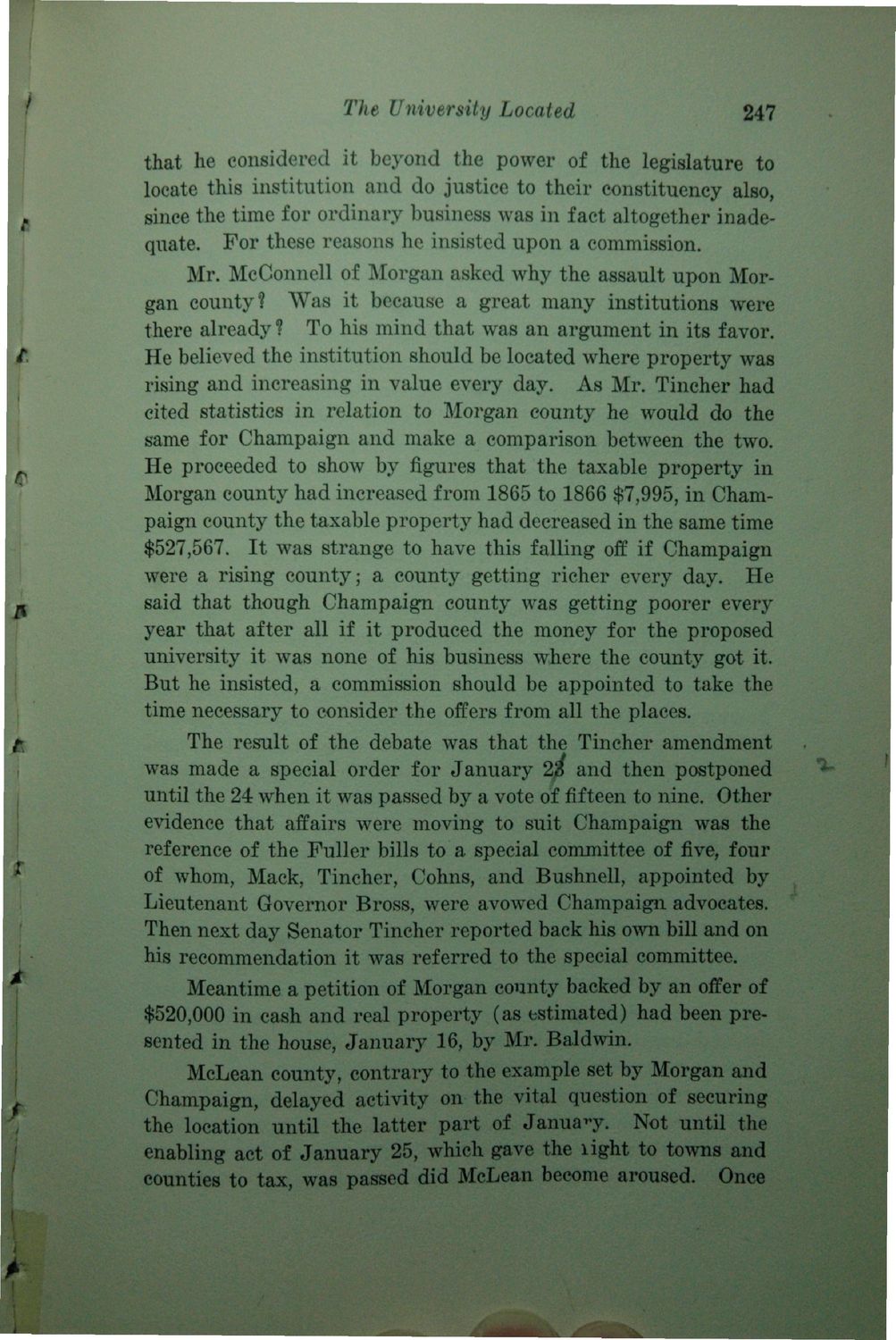| |
| |
Caption: Book - History of the University (Powell)
This is a reduced-resolution page image for fast online browsing.

EXTRACTED TEXT FROM PAGE:
The University Located 247 * / ~ - £ L' that he considered it beyond the power of the legislature to locate this institution and do justice to their constituency also, since the time for ordinary business was in fact altogether inadequate. For these reasons he insisted upon a commission. Mr. McConnell of Morgan asked why the assault upon Morgan county! Was it because a great many institutions were there already? To his mind that was an argument in its favor. He believed the institution should be located where property was rising and increasing in value every day. As Mr. Tincher had cited statistics in relation to Morgan county he would do the same for Champaign and make a comparison between the two. He proceeded to show by figures that the taxable property in Morgan county had increased from 1865 to 1866 $7,995, in Champaign county the taxable property had decreased in the same time $527,567, It was strange to have this falling off if Champaign were a rising county; a county getting richer every day. He said that though Champaign county was getting poorer every year that after all if it produced the money for the proposed university it was none of his business where the county got it. But he insisted, a commission should be appointed to take the time necessary to consider the offers from all the places. The result of the debate was that the Tincher amendment was made a special order for January 2& and then postponed until the 24 when it was passed by a vote of fifteen to nine. Other evidence that affairs were moving to suit Champaign was the reference of the Fuller bills to a special committee of five, four of whom, Mack, Tincher, Cohns, and Bushnell, appointed by Lieutenant Governor Bross, were avowed Champaign advocates. Then next day Senator Tincher reported back his own bill and on his recommendation it was referred to the special committee. Meantime a petition of Morgan county backed by an offer of $520,000 in cash and real property (as estimated) had been presented in the house, January 16, by Mr. Baldwin. McLean county, contrary to the example set by Morgan and Champaign, delayed activity on the vital question of securing the location until the latter part of January. Not until the enabling act of January 25, which gave the light to towns and counties to tax, was passed did McLean become aroused. Once
| |